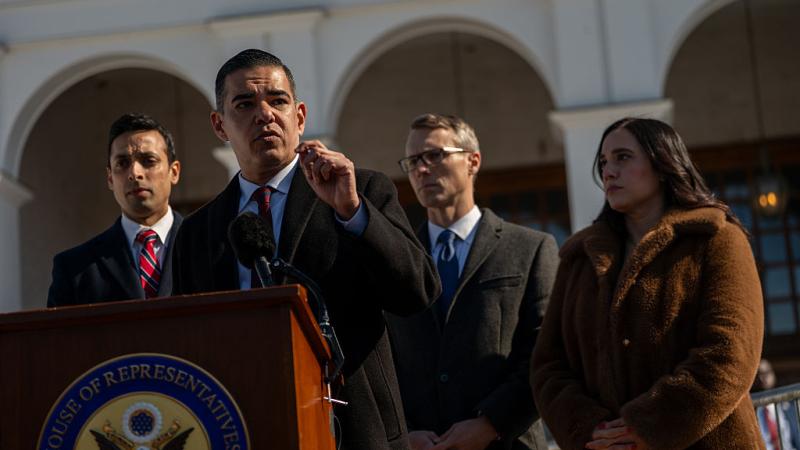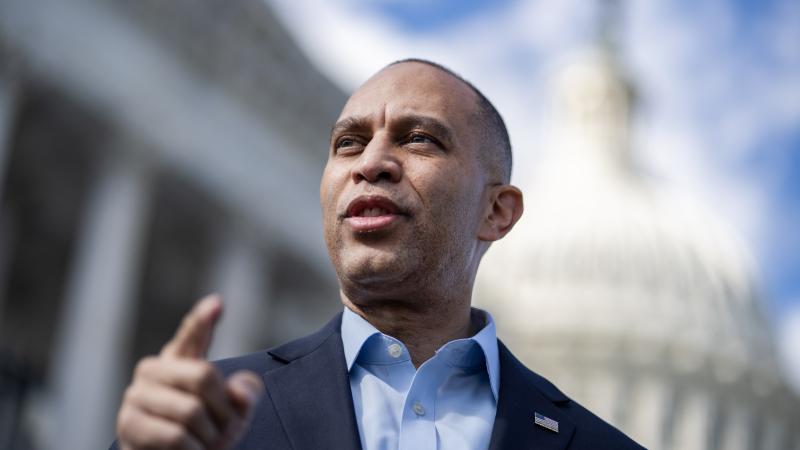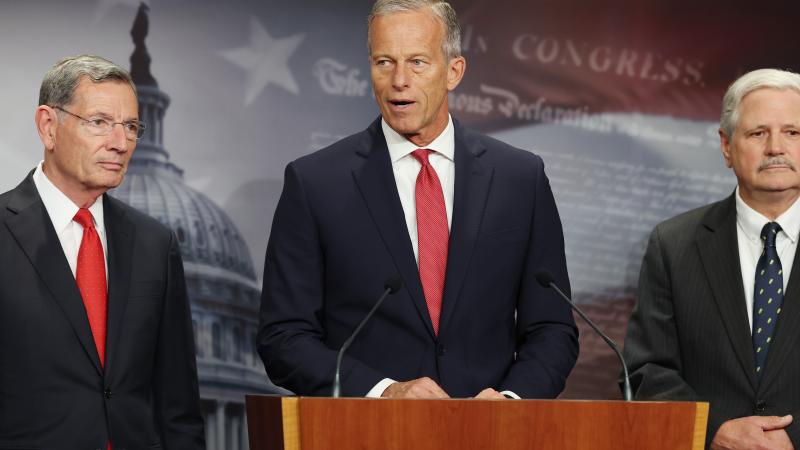Democrats face hard choices after election overhaul bill fails in Senate
Republicans signal they will oppose other Democratic alternatives to the For the People Act — but could budget reconciliation be used to pass parts of it?
Democrats in Congress face hard choices about how to proceed with enacting President Biden's agenda after Republicans successfully blocked the Democrats' election overhaul bill, the For the People Act, from advancing in the chamber on Tuesday.
Senate Democrats now turn to the budget reconciliation process to circumvent the legislative filibuster and pass key parts of Biden's agenda.
Some Republicans are already opposing the John Lewis Voting Rights Advancement Act, H.R. 4, as an alternative to the For the People Act, referred to as H.R. 1 in the House and S.1 in the Senate.
"If you put the federal government in charge of everything, again, they will gut things like voter ID laws, they're going to make it more difficult to maintain accurate voter files, they're going to require ballot harvesting," Republican Sen. Ron Johnson told Just the News.
Conservatives view H.R. 4 as H.R. 1 in disguise.
"I think that we should resist any temptation to have a federal takeover of elections, and whether that's called H.R. 1 or H.R. 4 doesn't particularly matter to me," Jason Snead of the Honest Elections Project told Just the News. "I think that right now, what you see on the progressive left is the treatment of H.R. 4 as the backup plan."
"It's allegedly about finding discrimination in voting, and yet it does not use any objective metrics to figure out which states are supposedly discriminating in voting," said Snead. "Instead, it targets practices like voter ID laws and procedures to clean up voter rolls."
Snead also said H.R. 4 would give the federal government the power to prevent states from implementing a requirement for voters to show an ID to cast a ballot.
Democrats are likely more motivated now to push a partisan reconciliation bill through Congress without GOP votes after the GOP stopped the Democrats' election overhaul effort using the legislative filibuster. A bill that passed the Democrat-led House to set up a commission to investigate the Jan. 6 riot also recently failed to advance in the Senate.
Senate Majority Leader Chuck Schumer and Senate Budget Chairman Bernie Sanders have started the process of adding elements of Biden's agenda to a large-scale budget reconciliation bill, regardless of the outcome of ongoing bipartisan negotiations on infrastructure.
Schumer has said the reconciliation bill will include the parts of Biden's $2.25 trillion American Jobs Plan and $1.8 trillion American Families Plan that are not included in a potential bipartisan agreement on infrastructure spending. The contents of the reconciliation package have not been finalized.
"I think there are large numbers of people in our caucus — and I sympathize with this — who will not vote for a bipartisan bill unless they're quite certain what's going to be in reconciliation," Schumer said last week.
On Tuesday ahead of the For the People Act vote, Schumer made clear that Democrats are proceeding with the reconciliation bill to avoid the filibuster.
There's a chance Senate Democrats could try adding some of the language from the For the People Act into a budget reconciliation bill such as the provisions related to spending taxpayer dollars to match donations to candidates of up to $200 at a 6-1 ratio.
"One thing voters are going to also hate in this bill too is having their taxpayer money go to fund campaigns, $6 of federal funding, taxpayer funding, for every dollar that candidates raise through low dollar donors," said Johnson. "You're forcing people to support candidates and policies and ideologies that they utterly oppose. That's not going to go over very well either."
It's unclear if the Senate parliamentarian would allow those provisions to stand in a reconciliation bill.















